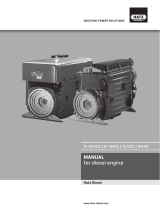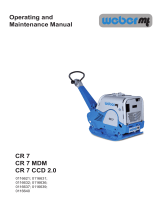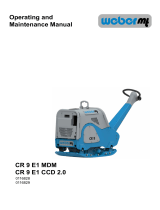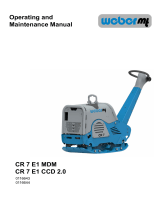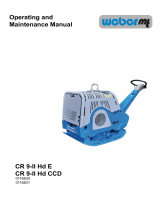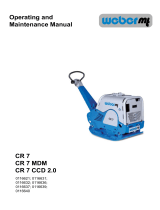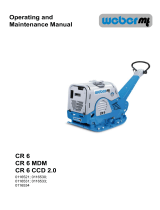
Table of contents
4 5100009744IVZ.fm
1 CALIFORNIA Proposition 65 Warning .................................................................................3
2 Preface ...................................................................................................................................6
3 Introduction ...........................................................................................................................7
3.1 Using the manual......................................................................................................................... 7
3.2 Storage location of the manual.................................................................................................... 7
3.3 Accident prevention regulations................................................................................................... 7
3.4 More information.......................................................................................................................... 7
3.5 Target group................................................................................................................................ 7
3.6 Explanation of symbols................................................................................................................ 7
3.7 Wacker Neuson Contact partner ................................................................................................. 8
3.8 Disclaimer.................................................................................................................................... 8
3.9 Product identification of the machine........................................................................................... 8
4 Security ..................................................................................................................................9
4.1 Policy........................................................................................................................................... 9
4.2 Areas of responsibility of the operator......................................................................................... 9
4.3 Operator responsibilities............................................................................................................ 10
4.4 Personnel qualification............................................................................................................... 10
4.5 Residual risks ............................................................................................................................ 10
4.6 General safety instructions ........................................................................................................ 10
4.7 Specific safety instructions – Vibratory plates ........................................................................... 11
4.8 General safety instructions - Combustion engines.................................................................... 13
4.9 General safety instructions – fuel, lubricants and coolants........................................................ 13
4.10 General safety instructions – starter batteries ........................................................................... 13
4.11 Maintenance.............................................................................................................................. 14
4.12 Personal Protective Equipment ................................................................................................. 14
4.13 Safety devices ........................................................................................................................... 15
4.14 Behavior in dangerous situations............................................................................................... 15
5 Safety and information labels ............................................................................................16
6 Setup and function ..............................................................................................................18
6.1 Standard package...................................................................................................................... 18
6.2 Application areas....................................................................................................................... 18
6.3 Short description........................................................................................................................ 18
6.4 Versions..................................................................................................................................... 19
7 Components and operator's controls ...............................................................................20
7.1 Components .............................................................................................................................. 20
7.2 Operator's controls..................................................................................................................... 21
8 Transport ..............................................................................................................................22
8.1 Loading and transport................................................................................................................ 22
9 Operation and use ...............................................................................................................24
9.1 Before commissioning ............................................................................................................... 24
9.2 Notes about operation ............................................................................................................... 24
9.3 Commissioning.......................................................................................................................... 25
9.4 Operation................................................................................................................................... 29
9.5 Decommissioning ...................................................................................................................... 30
10 Maintenance .........................................................................................................................32
10.1 Maintenance table ..................................................................................................................... 33
10.2 Maintenance jobs....................................................................................................................... 35
11 Troubleshooting ..................................................................................................................40
11.1 Fault table.................................................................................................................................. 40
11.2 Perform jump start with donor starter battery ............................................................................ 40
Inhalt






















